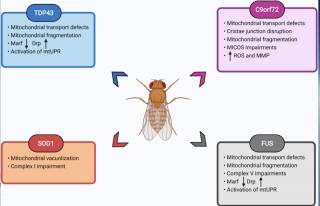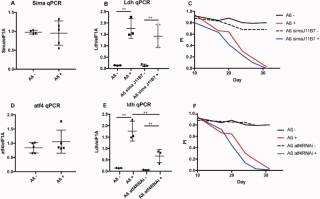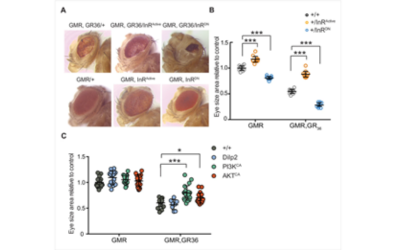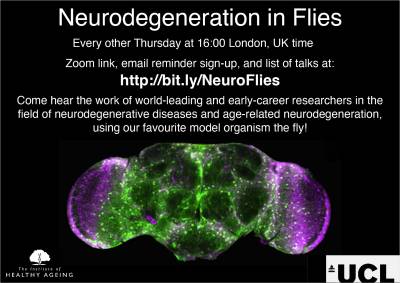Ageing and Neurodegeneration
Neurodegenerative diseases are characterised by the progressive death of neurons. The incidence of neurodegenerative diseases (like for many late onset diseases) increases dramatically with age. Even though neurodegenerative diseases (in particular dementia) are now the most common cause of death in the UK, we still do not understand why aging causes diseases or, indeed, what is triggering neuronal cell death. This is what we are trying to understand at the IHA.
We study some of the most common neurodegenerative diseases, such as Alzheimer’s and Parkinson’s disease, as well as some of the rarer but more aggressive conditions, such as Frontotemporal Dementia, and Amyotrophic Lateral Sclerosis. We have pioneered the development of a variety of fly models of disease and use them to uncover mechanisms of disease development.
In particular, we are looking at the role of the endosomal-lysosomal system in Parkinson’s disease (Kinghorn lab), the role of energy metabolism in Dementia (Niccoli lab), the interaction between glia and neurons in Alzheimer’s disease development (Partridge lab) and mechanisms of neuronal cell death in Amyotropic lateral sclerosis and Frontotemporal dementia (Partridge lab).
Some of the approaches we use to study neurodegeneration:
-Behavioural studies
-Lifespan analysis
-Confocal and Electron microscopy
-Single cell and bulk RNA sequencing
-Proteomics
 Close
Close
















